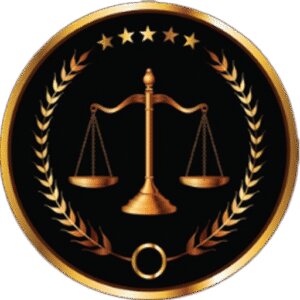Best Divorce & Separation Lawyers in Neuquén
Share your needs with us, get contacted by law firms.
Free. Takes 2 min.
Free Guide to Hiring a Family Lawyer
List of the best lawyers in Neuquén, Argentina
About Divorce & Separation Law in Neuquén, Argentina
Divorce and separation in Neuquén are governed primarily by national family law - most importantly the Civil and Commercial Code of the Nation - and are processed through the provincial family courts of Neuquén. Since the reform of family law in 2015, Argentina allows divorce without proving fault, and the system provides both negotiated solutions and judicial processes when spouses cannot agree. Matters commonly decided in divorce or separation proceedings include dissolution of the marriage bond, child custody and visitation, child support, spousal support, and the division or liquidation of the matrimonial property regime.
Why You May Need a Lawyer
Family disputes are emotional and have important legal, financial, and practical consequences. A lawyer helps in several common situations:
- You and your spouse disagree about child custody, visitation schedules, or whether a child should relocate.
- There is a dispute about child support - either setting, modifying, or enforcing payments.
- You need to determine which matrimonial property regime applies and how assets and debts will be divided or liquidated.
- You want an enforceable agreement that sets out custody, support, and property division, or you need help negotiating a settlement.
- You require urgent or provisional measures - for example, immediate child protection, interim financial support, or exclusion from the family home.
- There are allegations of domestic violence, risk to safety, or the need for protective orders.
- You are a foreign national, or there are foreign assets or proceedings in other countries - cross-border issues complicate the case.
- You need help complying with court procedures, filing paperwork correctly, presenting evidence, or appealing a decision.
Local Laws Overview
Key legal features and local practices relevant in Neuquén include:
- No-fault divorce - Either spouse can request divorce without proving misconduct. The court can grant divorce even if one party objects, although contested matters will take longer to resolve.
- Matrimonial property regimes - The Civil and Commercial Code allows different regimes. The statutory default is a participation-in-acquisitions regime, where spouses keep ownership of their assets but share in the increase of wealth accrued during marriage. If a marriage contract was signed, the agreed regime applies. Property division is handled either by mutual agreement or judicial liquidation.
- Child custody and visitation - Courts decide custody based on the best interests of the child. Common orders include primary custody, shared custody arrangements, detailed visitation schedules, and decisions about schooling and medical care. Spanish terms you will encounter include tenencia for custody and régimen de comunicación for visitation.
- Child support and spousal support - Courts set alimentary payments based on need and ability to pay. Support can be ordered provisionally while the case proceeds, and there are mechanisms to enforce unpaid support.
- Provisional and protective measures - Family courts in Neuquén can grant urgent interim orders - for example, provisional custody, temporary maintenance, exclusion from the shared home, or protection orders in cases of domestic violence. These measures can be requested early in the case.
- Mediation and conciliation - The legal system emphasizes dispute resolution and often requires or encourages mediation or conciliation for family conflicts, especially those that involve children. Local court rules may require an attempt at mediation before certain steps proceed, although exceptions exist for urgent or safety-related situations.
- Jurisdiction and procedure - Cases are heard in the Juzgados de Familia or equivalent family chambers within the Poder Judicial de la Provincia del Neuquén. Procedural rules and filing requirements follow provincial practice in coordination with national law. Proceedings and documents are in Spanish; certified translations and apostilles are needed for foreign documents.
Frequently Asked Questions
How do I start a divorce case in Neuquén?
You begin by filing a petition at the family court (Juzgado de Familia) in the jurisdiction where you live or where the family home is located. Your petition should set out the relief sought - for example divorce, custody orders, support, and provisional measures. A lawyer can prepare and file the papers, represent you in hearings, and request interim orders if needed.
Can I get divorced without my spouse agreeing?
Yes. Argentine law allows unilateral divorce petitions. If the divorce is contested, secondary issues like custody, support, and property division will be decided by the court and may extend the duration of the process.
What documents will I need to file?
Typical documents include identification (DNI or passport), marriage certificate, birth certificates of children, proof of residence, evidence of income and expenses, property and bank documents, and any marriage contracts or prenuptial agreements. If you have documents from another country, you will likely need certified translations and proper legalization or apostille.
How is child custody decided?
Court decisions prioritize the best interests of the child. The judge considers factors such as the child’s age, emotional ties, each parent’s ability to provide care, domestic stability, and the child’s own views depending on age. Courts may order sole custody, joint custody, or shared caretaking, with corresponding visitation or communication orders for the other parent.
How is child support calculated?
There is no single national formula - courts calculate child support based on the child’s needs and the paying parent’s ability to pay. Judges consider income, reasonable living standards, educational and medical needs, and the custodial parent’s financial situation. Courts can order provisional payments while the case is ongoing.
What happens to property and debts?
Division depends on the matrimonial property regime that governs your marriage. If spouses agreed a regime at the time of marriage, that regime applies. Under the default participation regime, spouses maintain ownership but share in increases in wealth earned during marriage. The court or the parties can liquidate and divide assets by agreement or through judicial liquidation. Debts contracted during marriage are also examined according to the applicable regime.
Can I get urgent protection if there is domestic violence?
Yes. If you or your children face violence or threats, you can ask the family court for urgent protective measures - including restraining orders, exclusion of the alleged aggressor from the home, emergency custody orders, or immediate support. Criminal complaints can also be filed with the police or prosecutor. Seek legal counsel and, if necessary, support from social services or shelters immediately.
Do we have to go to mediation?
Mediation or conciliation is commonly encouraged and may be required by local rules before certain judicial steps. Mediation aims to reach agreements on custody, visitation, support, and property division. Exceptions are typically available in cases of urgency, domestic violence, or when mediation would pose a risk to a party or child.
How long does a divorce usually take?
There is no fixed period. Uncontested divorces where parties agree on all issues are generally faster - potentially resolved in a matter of weeks or a few months depending on court workload. Contested cases involving custody disputes, complex assets, or enforcement can take many months or longer. Timelines depend heavily on how quickly evidence is produced, whether provisional measures are needed, and the court calendar.
What if I cannot afford a lawyer?
If you cannot afford private legal counsel, Neuquén has legal aid services and public defenders for family matters in certain situations. The Colegio de Abogados de la Provincia del Neuquén can also provide information about lawyer referral services and pro bono assistance. Additionally, social services and non-governmental organizations may offer support for urgent safety, housing, or child welfare needs.
Additional Resources
Consider contacting or consulting the following local and national resources for information and assistance:
- Poder Judicial de la Provincia del Neuquén - Family Courts and procedural information for filing and hearings.
- Registro Civil y Capacidad de las Personas - for certified copies of marriage and birth certificates.
- Colegio de Abogados de la Provincia del Neuquén - lawyer referral services and information about attorneys who specialize in family law.
- Provincial social services or the Dirección Provincial de la Mujer - for support in cases of domestic violence and access to shelters and social assistance.
- Public legal aid offices and defensorias - for low-cost or free legal representation in family matters.
- National Civil and Commercial Code - the primary statute governing divorce and family law across Argentina, which provides the legal framework applied by local courts.
Next Steps
If you need legal assistance with divorce or separation in Neuquén, consider the following practical steps:
- Gather documents - collect ID, marriage and birth certificates, proof of address, proof of income, bank and property records, and any evidence relevant to custody or safety issues.
- Seek an initial consultation - contact a family law attorney experienced in Neuquén matters to explain your situation, understand options, and estimate costs and timelines.
- Consider mediation - if safe and feasible, mediation can speed resolution and reduce conflict. Discuss this option with your lawyer.
- Ask about provisional measures - if you need immediate protection, temporary custody, or urgent financial support, request that your lawyer file for interim orders right away.
- Use local resources - if finances or safety are a concern, contact public legal aid, social services, or local organizations for assistance.
- Keep records - keep copies of all communications, financial records, and any incidents that relate to custody or safety. Detailed records help your lawyer and the court.
- Prepare for court language and formalities - proceedings will be in Spanish; if you need language assistance or certified translations for foreign documents, arrange those early.
Taking informed steps early helps protect your rights and those of your children. A local family law attorney can advise you on the specifics of Neuquén practice, represent you in court, and help negotiate the most practical, enforceable outcomes for your situation.
Lawzana helps you find the best lawyers and law firms in Neuquén through a curated and pre-screened list of qualified legal professionals. Our platform offers rankings and detailed profiles of attorneys and law firms, allowing you to compare based on practice areas, including Divorce & Separation, experience, and client feedback.
Each profile includes a description of the firm's areas of practice, client reviews, team members and partners, year of establishment, spoken languages, office locations, contact information, social media presence, and any published articles or resources. Most firms on our platform speak English and are experienced in both local and international legal matters.
Get a quote from top-rated law firms in Neuquén, Argentina — quickly, securely, and without unnecessary hassle.
Disclaimer:
The information provided on this page is for general informational purposes only and does not constitute legal advice. While we strive to ensure the accuracy and relevance of the content, legal information may change over time, and interpretations of the law can vary. You should always consult with a qualified legal professional for advice specific to your situation.
We disclaim all liability for actions taken or not taken based on the content of this page. If you believe any information is incorrect or outdated, please contact us, and we will review and update it where appropriate.









